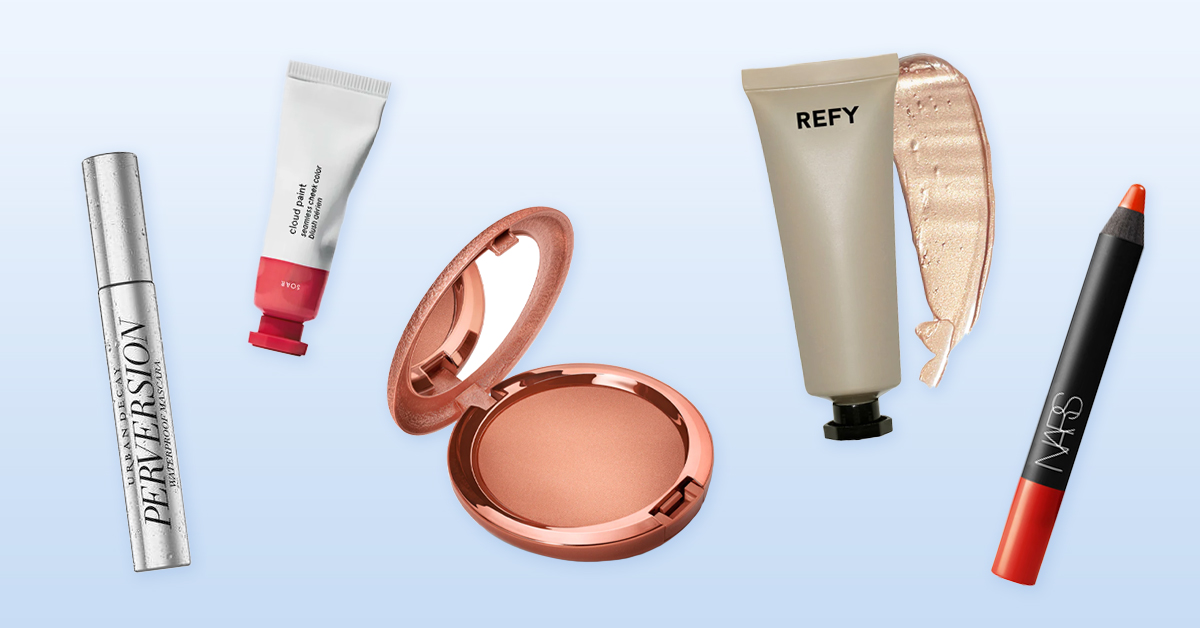Do you need sunscreen in winter?
The hot summer sun and sunscreen go hand in hand, like sand and the ocean. But when winter rolls around, you might think that you don’t have to wear SPF outdoors — well, think again. Sunscreen should be worn year-round, regardless of the weather, to protect skin against harmful UVA and UVB rays.
Can you get sunburned in the winter?
Here’s the thing about the sun: it comes out even when it’s cold outside. And the sun can also damage your skin even when it’s cloudy. UVA rays can penetrate through the clouds, and snow reflects up to 80 percent of the sun’s UV light, so those rays are hitting you twice. This can potentially cause twice as much damage to your skin. Even if you’re indoors for most of the winter months, UV rays can penetrate through glass, too.
Just like sun damage, sunburns don’t only happen in summer. UVB rays are responsible for sunburns. They can affect the skin all year round. You might notice the sun’s effects less in winter because less skin is exposed, and you’re spending less time outside compared to summer, but sunburns are still possible. And if you aren’t wearing sunscreen in winter, you can definitely still get a sunburn.
Why use sunscreen in winter?
Sunscreen should be worn year-round, even in the winter, because it helps protect the skin against sun damage, including fine lines and wrinkles caused by prolonged sun exposure. It also helps to decrease your risk of developing skin cancer. To maintain healthy, happy skin, you should apply SPF to exposed areas daily, rain or shine. Some reasons you should wear sunscreen during winter include the following:
1. UV rays generate winter clouds
No matter how thick those overcast clouds may look in the wintertime, up to 80% of the sun’s rays still penetrate them. There are two types of UV rays — UVA and UVB rays. UVA rays are always present and can penetrate clouds and glass. They tend to go deeper into the skin and damage deeper skin layers, which can result in premature aging and an increased risk of skin cancer. UVB rays, however, can vary depending on the season. They are more potent on sunny days during the summer and mainly damage the more superficial layers of the skin, resulting in sunburns and skin cancer. The good news is sunscreen helps protect the skin against UVA and UVB rays.
2. Winter sports increase your risk of UV exposure
If you plan on skiing, snowboarding, or snowshoeing this winter, apply a sport sunscreen with at least 30 SPF to all exposed areas. UV radiation increases by 5 percent with every thousand feet you rise above sea level—the higher your elevation, the greater your exposure to harmful UV rays. What’s more, snow reflects and intensifies sunlight, making your skin more vulnerable to sunburns.
3. You’re still at risk of skin cancer in the winter
The sun’s rays can cause skin cancer anytime, regardless of the season. In fact, 90 percent of non-melanoma skin cancers are associated with UV exposure from the sun. That’s why it’s essential to protect yourself by wearing a hat, sunglasses, and sunscreen.
How should sunscreen be applied in winter?
In the summertime, on a hot day at the beach, you most likely sweat off your sunscreen and need to reapply it. What might be surprising is the fact that the winter’s harsh conditions erode your sunscreen even faster. Snow and strong winds wear away sunscreen and reduce its effectiveness, so you must reapply it frequently throughout the day.
To keep your skin as safe as possible this winter, apply sunscreen to all exposed skin, even your lips. Don’t forget to protect the skin that’s exposed from reflected UV rays caused by the snow, like the underside of your chin and the bottom of your nose. Be sure to put on sunscreen for at least 20 minutes before going outside. You’ll need to reapply sunscreen every two hours and more often than that if you’re sweating.
What are the best sunscreens for winter?
When choosing a sunscreen to wear this winter, look for one that offers broad-spectrum UVA and UVB protection with at least an SPF of 30 or higher. Choose a sunscreen specifically designed for the face, such as LaserAway Beauty BFF SPF 50+ Broad Spectrum Sunscreen that protects against UV rays, pollution, and oxidative stress. Its hydrating formula contains antioxidants to help protect your skin’s natural moisture barrier. For your body, select one like LaserAway Beauty BFF SPF 30+ Broad Spectrum Sunscreen that protects the skin with a mineral shield and moisturizes for up to 24 hours.
Don’t forget that sunscreen should complement a solid skincare routine consisting of a gentle cleanser and moisturizer formulated with peptides and ceramides. Check out LaserAway Beauty to learn more about dermatologist-tested and developed top-of-the-line skincare products.
References
1. “6 Reasons You Need to Wear Sunscreen in Winter,” The Healthy, March 30, 2022
2. “Should You Wear Sunscreen in Winter?,” Colorescience, December 28, 2021.
















